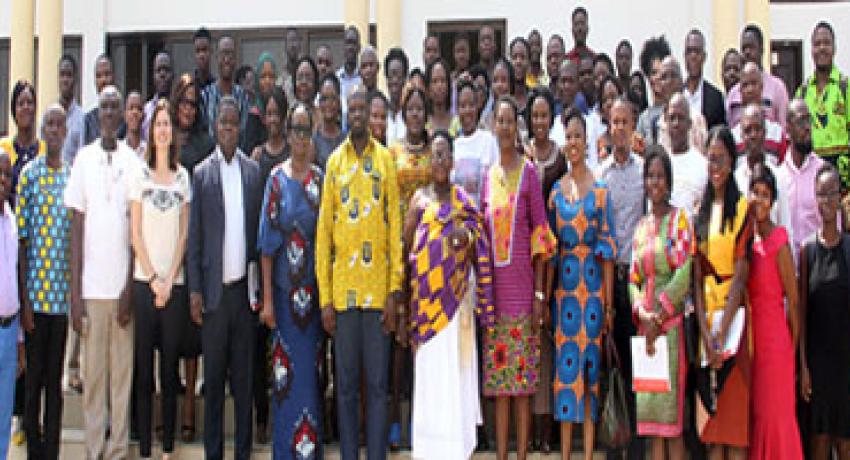Prof. Felix Asante, Director of ISSER has observed that though the Paperless Policy of government at the Ports has made some gains there is the need to work hard to tackle challenges confronting the system to pave way for increased revenue generation. The Institute of Statistical, Social and Economic Research (ISSER) and the Institute of Development Studies (IDS) held a one-day dissemination workshop to discuss the findings of a research project, titled: Unlocking the Benefits of Productive Uses of Energy for Women (PUE). The event occurred on Tuesday, 22nd January 2019 at the ISSER Conference Facility, where Ms. Eccles Andoh, the Administrative Secretary of ISSER, welcomed all the participants. The workshop was to afford researchers the opportunity to receive feedback from stakeholders and participants. The study countries are Ghana, Tanzania and Myanmar. Partners of the project are GIZ, Biogas Technology Africa, Ministry of Energy, Ministry of Gender, Children and Social Protection, Ministry of Food and Agriculture, Energy Commission, Global Affairs Canada, and ENERGIA. The Project Lead, Dr. Ana Pueyo of the Institute of Development Studies, University of Sussex, noted that PUE is in line with SDGs 5 and 7, which focus on gender equality and empowerment for all women and girls and also on access to affordable, reliable, sustainable and modern energy for all. Case studies of PUE interventions in Ghana and Tanzania showed that male-dominated sectors were more likely to benefit from improvements in electricity supply than female-dominated ones. The findings also revealed that male entrepreneurs typically operate larger enterprises that consume more electricity than female entrepreneurs, whose businesses typically dominate in the use of cooking fuels such as firewood, charcoal and liquefied petroleum gas. Further, studies carried out in five sites in Myanmar found that men own more businesses than women and require higher quantities of energy; moreover, men and women use energy differently, with men more likely to benefit from access to electricity interventions. Dr. Simon Bawakyillenuo, head of the Statistical and Survey division at ISSER, gave an overview of the field methodological processes of the PUE project in Ghana, and indicated that the study sites in Ghana were Techiman, Berekum and Tuobodom in Brong Ahafo region. In her closing remarks, chairperson of the workshop, Dr. Rose Mensah Kutin, commended ISSER and GIZ for the intervention and urged them to conduct more research on PUE not only in Ghana but also in Africa and beyond.

